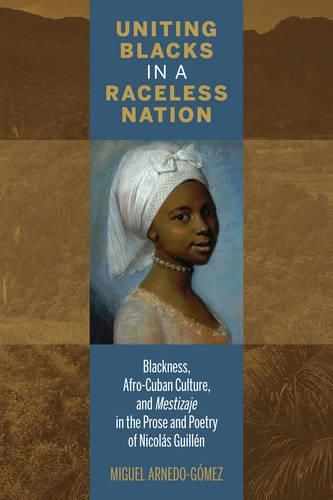Readings Newsletter
Become a Readings Member to make your shopping experience even easier.
Sign in or sign up for free!
You’re not far away from qualifying for FREE standard shipping within Australia
You’ve qualified for FREE standard shipping within Australia
The cart is loading…






The Cuban writer Nicolas Guillen has traditionally been considered a poet of mestizaje, a term that, whilst denoting racial mixture, also refers to a homogenizing nationalist discourse that proclaims the harmonious nature of Cuban identity. Yet, many aspects of Guillen’s work enhance black Cuban and Afro-Cuban identities. Miguel Arnedo-Gomez explores this paradox in Guillen’s pre-Cuban Revolution writings placing them alongside contemporaneous intellectual discourses that feigned adherence to the homogenizing ideology whilst upholding black interests. On the basis of links with these and other 1930s Cuban discourses, Arnedo-Gomez shows Guillen’s work to contain a message of black unity aimed at the black middle classes. Furthermore, against a tendency to seek a single authorial consciousness-be it mulatto or based on a North American construction of blackness-Guillen’s prose and poetry are also characterized as a struggle for a viable identity in a socio-culturally heterogeneous society.
$9.00 standard shipping within Australia
FREE standard shipping within Australia for orders over $100.00
Express & International shipping calculated at checkout
The Cuban writer Nicolas Guillen has traditionally been considered a poet of mestizaje, a term that, whilst denoting racial mixture, also refers to a homogenizing nationalist discourse that proclaims the harmonious nature of Cuban identity. Yet, many aspects of Guillen’s work enhance black Cuban and Afro-Cuban identities. Miguel Arnedo-Gomez explores this paradox in Guillen’s pre-Cuban Revolution writings placing them alongside contemporaneous intellectual discourses that feigned adherence to the homogenizing ideology whilst upholding black interests. On the basis of links with these and other 1930s Cuban discourses, Arnedo-Gomez shows Guillen’s work to contain a message of black unity aimed at the black middle classes. Furthermore, against a tendency to seek a single authorial consciousness-be it mulatto or based on a North American construction of blackness-Guillen’s prose and poetry are also characterized as a struggle for a viable identity in a socio-culturally heterogeneous society.